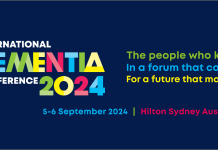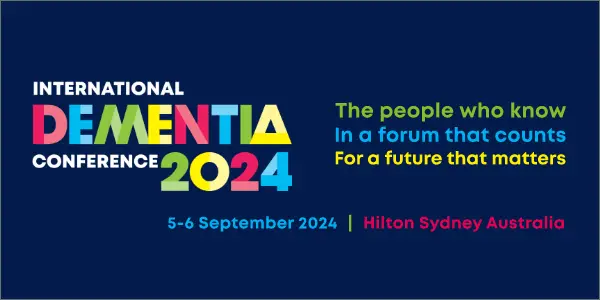Updated: 23 February 2023. The govt has announced an indicative list of occupations and qualifications eligible for post-study work rights extension, with the full list to be published before the implementation date of 1 July 2023. Registered Nurses in Aged Care (RNs) are listed as eligible, along with the future demand projected as being strong – the highest rating. Care Givers are not included on the list, which means that students currently studying aged care related courses – and in many cases working in aged care – will need to leave Australia upon completing their studies. The full list of occupations and qualifications eligible can be found here.
In this Q&A, Inside Ageing (IA) speaks with Tony Patterson, CEO of KCA Education about Vocational Education Training (VET) and how this seldom talked about area of training can provide workers to the aged care sector and that current visa restrictions prevent this.
IA: Can you tell us a little bit about your segment of the market and how it differs from other areas of training, including universities? Also, now that foreign students are returning have things returned to normal?
Tony: KCA Education is a private VET provider that has been established since 2007 and has focused on providing Australian qualifications to international students since 2016. We are a small bespoke college that has been established on the principles of Respect, Integrity and the Belief that together and through quality training and education we can make a difference in people’s lives. While there has been an increase in the return of university students and those studying general English, unfortunately, things in the VET sector have not yet returned back to normal, which is strange considering it is VET students who typically study practical skills-based courses, often in areas of critical skills shortages such as aged care.
IA: I believe you specialise in both the aged care and childcare sectors, so you’ll have a good read on the staffing issues impacting aged care. For aged care, your business offers training certificates in both Individual and Ageing support. Are you starting to see an inflow of foreign students undertaking this study, who from what I understand need to perform mandatory work placement within the sector?
Tony: That is correct, we focus on what I refer to as ‘Global Skills’ shortage programs given the population is ageing globally, along with some countries experiencing a baby boom, conversely, the need for skilled childcare educators and aged workers is critical. While we have had a shortage in our Aged Care sector in Australia for some time now, the challenges of COVID-19 along with the Royal Commission have brought this to the forefront, with society now understanding how much of a skills shortage we have in our own country and how critical the care of our elderly is. While there needs to be a multipronged strategy to address this situation, I believe there is at least one simple solution involving the use of international students and recent graduates who have undertaken formal training in this area.
IA: We read with interest about the Govt’s recent 485 Post Study Workstream Visa designed to provide students with working visas for 2 – 4 years alongside their studies – designed to help alleviate the skills shortage. I don’t think this applies to VET training and is more designed for those studying Masters, PhD’s and Undergraduate degrees. What visa options do your students currently have should they wish to continue working in the aged care sector post-study?
Tony: The 485 visa offers two streams: the Temporary Post-Study Work Stream visa (subclass 485) which is designed for international students who have recently completed a university degree-based program and the Temporary Graduate visa (subclass 485) allowing international students who have graduated with the skills and qualifications that have been listed on the skilled occupations list. While these visas are of assistance in some areas, unfortunately, there are currently no opportunities for an international student who is studying a Certificate III in Individual Support (Ageing or Disability) or a Certificate IV in Ageing to access the 485 Visa.
IA: Isn’t aged care on some type of preferred occupation list?
Tony: Unfortunately, no. While I personally find it ironic that accountants, auditors and advertising managers are listed and seen as having a skill shortage; areas such as the aged care sector are crying out for skilled workers are not – that is unless the student is studying or already a registered nurse.
The only opportunity an international student has is to either find another visa that they may qualify for or another course that may lead to a 485 Visa outcome or return home. While this meets the Genuine Temporary Entrant (GTE) requirements of the visa, it seems a shame since the students have taken the time to gain the skills and work experience that we need to address the skill shortages in the aged care sector, only to let them leave the country.
For example, the Philippines is our number one market for this sector with many students who already have clinical nursing experience in their home country with good English skills coming to Australia to study courses such as Individual Support or Ageing Support that is more holistic when looking after and caring for the elderly. While they all must undertake at least a minimum of 120 hrs of mandatory work placement in the aged care sector, over 90% of my students are paid and employed part-time during their placement and studies which is assisting with the skill shortage, however, there is no avenue to go once they have completed their studies.
Whereas if Aged or Disabled Carer workers were listed on the Skilled Migration Occupation Lists (SMOL) or Priority Migration Skilled Occupation List (PMSOL), they could at least apply for a 485 Graduate Work Stream visa that would allow them to stay and work in the sector.
IA: Has this always been the case?
Tony: To the best of my knowledge, yes. However, each year the Occupational Skills list is reviewed based on the needs of the country.
The Australian Government used to provide a ‘Skilled Migration Occupation List Review’(SMOL) internally referred to as the ‘Traffic Light Bulletin’. This document was normally released in December and flagged the change in status of occupancies that were to be either added, removed or under consideration to be added to the occupation list. This list would then be announced in March of the following year.
In December 2019, the SMOL Traffic Light Bulletin announced for the first time that an Aged or Disabled Carer would be added to the Short-Term Skilled Occupation List (STSOL). This meant that any international student undertaking a relevant course in Individual Support, Ageing Support of Disabilities would be able to apply for an STSOL visa once their studies were completed.
This announcement was due in March 2020, and unfortunately never occurred due to COVID.
While it was recently published that Australia stands to lose a high number of aged care workers over the new few years, it would appear that adding Care workers to the Occupation List and allowing international students to obtain employment would be one solution to assist.
IA: Thank you










